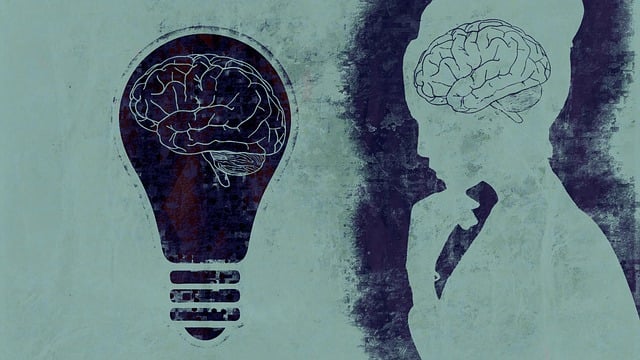Burnout among healthcare providers in high-pressure settings like hospitals and clinics in Aurora is characterized by emotional exhaustion, cynicism, detachment, and reduced personal accomplishment, impacting team communication and patient care. Early recognition is crucial for strategies such as integrated trauma support, peer supervision, mental health policies, and therapy sessions encouraging open dialogue. Prioritizing provider well-being improves work environment, staff satisfaction, and patient outcomes. Effective communication through Aurora Couples Communication Issues Therapy builds trust and reduces emotional load on therapists. Cultural sensitivity, therapeutic interventions, and supportive networks within healthcare institutions further prevent burnout. Cultivating resilience and healthy work-life balance, including self-care routines like exercise and mindfulness, are essential for providers to manage stress and prioritize personal needs.
Healthcare provider burnout is a growing concern, impacting both individual well-being and patient care. This article explores comprehensive strategies to prevent burnout among healthcare providers, focusing on effective communication, therapeutic interventions, support systems, and cultivating resilience. By understanding the unique challenges faced by healthcare professionals, such as Aurora Couples facing communication issues in high-pressure environments, we can implement solutions that foster better work-life balance and enhance job satisfaction.
- Understanding Burnout Among Healthcare Providers
- The Role of Effective Communication in Prevention
- Therapeutic Interventions and Support Systems
- Cultivating Resiliency and Work-Life Balance
Understanding Burnout Among Healthcare Providers

Burnout among healthcare providers is a growing concern, especially in high-pressure settings like hospitals and clinics. It’s more than just feeling tired; it’s a state of emotional exhaustion characterized by cynicism and detachment from work, along with feelings of ineffectiveness and reduced personal accomplishment. In Aurora, where access to mental health services is crucial, healthcare professionals face unique challenges due to demanding schedules, complex patient needs, and often, limited resources. This can lead to significant communication issues within teams, impacting patient care and provider well-being.
Recognizing burnout early is essential for implementing effective burnout prevention strategies for healthcare providers. Strategies such as integrated trauma support services, regular peer supervision, and robust mental health policy analysis and advocacy are vital tools. Encouraging open dialogue about emotional experiences through therapy sessions can help professionals process stress and build resilience. By prioritizing provider well-being, healthcare organizations can foster a healthier work environment that supports both staff satisfaction and improved patient outcomes.
The Role of Effective Communication in Prevention

In the fight against healthcare provider burnout, effective communication plays a pivotal role. The dynamic between patients and healthcare professionals, particularly in therapy settings like Aurora Couples Communication Issues Therapy, can significantly impact the overall well-being of the providers. Open and transparent dialogue fosters a sense of trust and understanding, reducing the emotional burden on therapists. By encouraging patients to express their feelings, concerns, and experiences, healthcare providers gain valuable insights, allowing them to offer tailored support and treatment plans. This proactive approach not only enhances patient care but also serves as a protective measure against burnout by addressing issues at their root.
Cultural sensitivity in mental healthcare practice is another crucial aspect that contributes to burnout prevention. With diverse patient populations, therapists must be adept at tailoring their communication styles and therapeutic methods to accommodate different cultural backgrounds and perspectives. This involves educating themselves on various cultural norms and beliefs related to mental health, ensuring that every patient feels heard, respected, and supported. Integrating positive thinking and mental health education programs into the design of therapy sessions can further empower both patients and providers, fostering a more optimistic outlook and reducing stress levels.
Therapeutic Interventions and Support Systems

Healthcare providers often face unique challenges that can lead to burnout, particularly when dealing with complex patient cases and high-stress environments. Therapeutic interventions and robust support systems play a pivotal role in prevention strategies. Therapy, such as Aurora Couples Communication Issues Therapy, offers a dedicated space for providers to process their experiences and emotions. Through structured sessions, professionals can develop emotional intelligence, enhancing their ability to manage stress and maintain work-life balance. This form of therapy also facilitates conflict resolution techniques, addressing interpersonal challenges that may arise in healthcare settings.
In addition to individual therapy, creating supportive networks within healthcare institutions is essential. Mentorship programs, peer support groups, and regular staff meetings facilitate open communication, allowing professionals to share experiences, offer mutual support, and reduce feelings of isolation. Moreover, integrating Mental Illness Stigma Reduction Efforts into these platforms can foster an environment where providers feel understood and encouraged to seek help without fear of judgment. Such interventions collectively contribute to a healthier, more resilient workforce.
Cultivating Resiliency and Work-Life Balance

In today’s demanding healthcare landscape, cultivating resilience and achieving a healthy work-life balance are essential strategies to prevent burnout among providers. This involves adopting practices that nurture both mental and emotional well-being. For professionals in relationships, such as therapists or counselors, integrating self-care routines into their daily lives is crucial. Dedicating time for activities like exercise, mindfulness practices, and engaging in a Mental Wellness Podcast Series Production can significantly enhance resilience against the challenges of the job.
At an individual level, developing a structured Self-Care Routine Development for Better Mental Health becomes a powerful tool to manage stress levels. By prioritizing personal needs and setting boundaries, healthcare providers can ensure they are not only caring for their patients but also for themselves. For instance, therapists in Aurora could benefit from exploring local support groups or engaging in Coping Skills Development sessions to navigate any communication issues within their practice while fostering a healthier work environment.
Healthcare provider burnout is a growing concern, but by understanding and implementing effective strategies, we can foster resilience and work-life balance. Open communication through channels like Aurora Couples therapy plays a crucial role in prevention, addressing underlying issues before they escalate. Therapeutic interventions and robust support systems further mitigate stress, while cultivating resiliency empowers professionals to navigate challenging environments. By integrating these holistic approaches, healthcare providers can sustain their well-being and passion for patient care.














